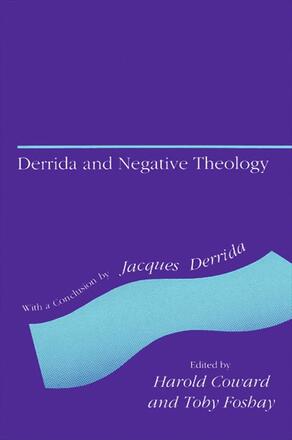
Derrida and Negative Theology
Alternative formats available from:
Description
This book explores the thought of Jacques Derrida as it relates to the tradition of apophatic thought—negative theology and philosophy—in both Western and Eastern traditions. Following the Introduction by Toby Foshay, two of Derrida's essays on negative theology, Of an Apocalyptic Tone Newly Adopted in Philosophy and How to Avoid Speaking: Denials, are reprinted here. These are followed by essays from a Western perspective by Mark C. Taylor and Michel Despland, and essays from an Eastern perspective by David Loy, a Buddhist, and Harold Coward, a Hindu. In the Conclusion, Jacques Derrida responds to these discussions.
Harold Coward is Director of the Calgary Institute for the Humanities at the University of Calgary. He is author of Derrida and Indian Philosophy and Jung and Eastern Thought; editor of Modern Indian Responses to Religious Pluralism; and co-author of Hindu Ethics: Purity, Abortion, and Euthanasia, all published by SUNY Press. Toby Foshay is Assistant Professor in the Department of English at the University of Victoria.
Reviews
"So we could say that, rather than measuring deconstruction as a negative theology, we are attempting to gauge the degree to which the modern in its negativity is prefigured by the classical tradition in its own characteristic search for autonomy, to better appreciate the genealogy and disjunction of our era. " — from the Introduction